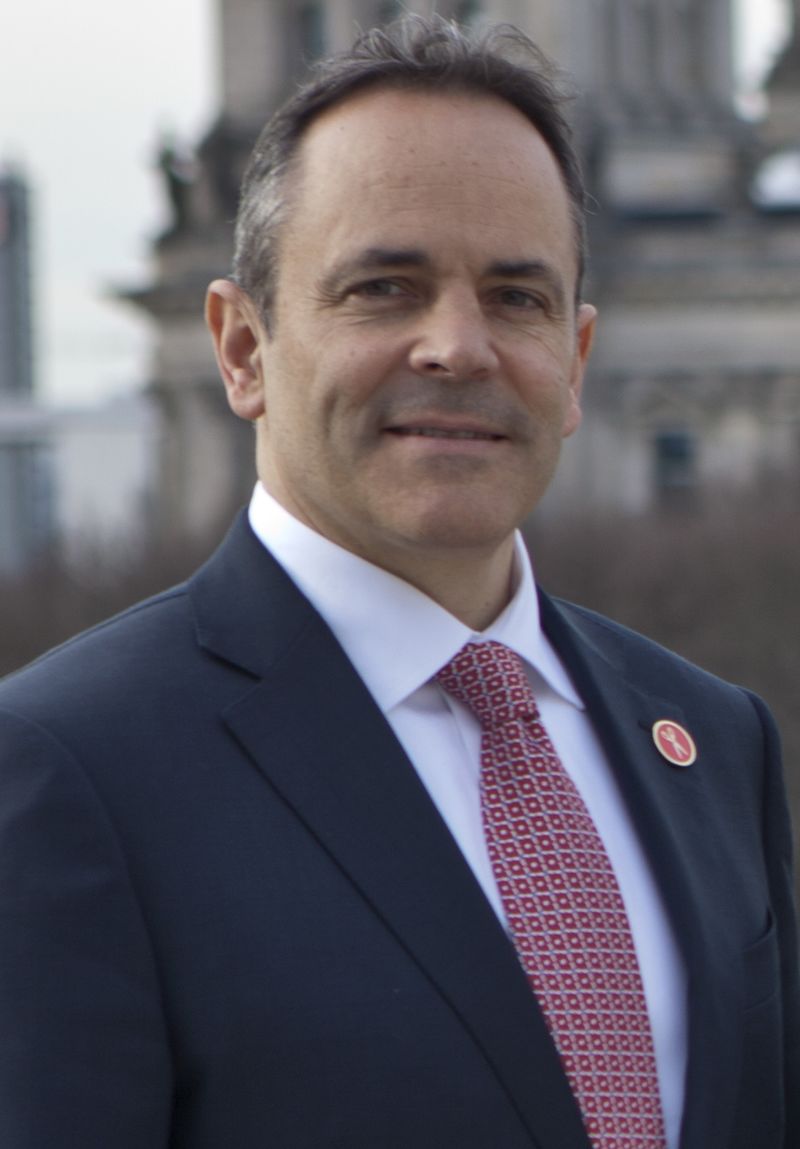American News
Kentucky governor readies for Medicaid legal challenge

Matt Bevin (Photo by usbotschaftberlin – The Governors of Kentucky South Dakota and Oklahoma Visit Germany, Public Domain)
FRANKFORT, Ky. — Gov. Matt Bevin says he will end Medicaid benefits for more than 400,000 Kentuckians if the courts stop him from requiring many of them to work.
Kentucky was among 32 states that expanded Medicaid under President Barack Obama’s health care law, and many more people signed up than forecast. The program now covers more than a quarter of the state’s population. Federal spending covers almost all the cost of the expanded program. But the state’s share is poised to grow and Bevin, a Republican who took office after the expansion, says Kentucky can’t afford to maintain it without changes.
Bevin’s solution, approved by the Trump administration on Friday, is to impose work requirements for many of these Medicaid recipients. It’s the first time the federal government has allowed a state to make having a job or volunteering for community service a requirement for receiving government-funded health insurance.
Some health advocacy groups question the legality of such requirements. No lawsuits have been filed yet, but Bevin indicated he expects challenges. And in an executive order filed Friday but not made public until Tuesday, he directed his administration to end the state’s Medicaid benefits for the more than 400,000 people in the expansion if the courts strike down any part of his plan.
“The Commonwealth will not be able to afford to continue to operate its Medicaid expansion program as currently designed in the event any one or more of the components of (the new program) are prevented by judicial action from being implemented,” Bevin wrote.
Bevin wants to make the program smaller, saving the state more than $300 million over the next five years. He also predicts that least 95,000 people will lose Medicaid benefits either because they did not comply with the new work requirements, or because they find jobs that pay too much for them to be eligible.
The governor said Friday that he doesn’t know “nor do I really care” what the ultimate cost savings would be, because he believes people will improve their health if they have to do more to earn their benefits. For example, his plan would eliminate Medicaid’s basic vision and dental coverage for the expansion population, but enable people to get those benefits back through a “rewards” program that includes health assessments, smoking cessation programs and other preventive care.
“It has gone well beyond any projections about cost or number of individuals that would go onto the rolls, therefore creating a real fiscal problem which I think Gov. Bevin is trying to address,” Republican Senate President Robert Stivers said.
Joni Jenkins, a Democratic state representative from Louisville, is concerned that these changes could “hurt the very people we need to help.”
“I just think it’s interesting that he feels that he has to start out with threats instead of coming from a place of, ‘let’s work together, let’s see if we can make this work,”’ she said.
Bevin’s Medicaid changes take effect in July. They require adults between the ages of 19 and 64 to complete 80 hours per month of “community engagement” to keep their coverage, including working in a job, going to school, taking a job training course or performing community service.
Exemptions extend to pregnant women, full-time students, former foster care youth and primary caregivers of children and the elderly. They also do not apply to the “medically frail,” a broad term that includes people suffering from alcohol and drug addiction along with cancer patients and those with mental illness.
All of those people would lose their health benefits if Bevin ends the expanded Medicaid program altogether.
“I’m afraid this executive order will cause a lot of anxiety for people who are already struggling with too many unknown variables in their lives,” said Emily Beauregard, executive director of Kentucky Voices for Health, a patient advocacy group.





















